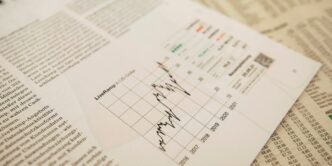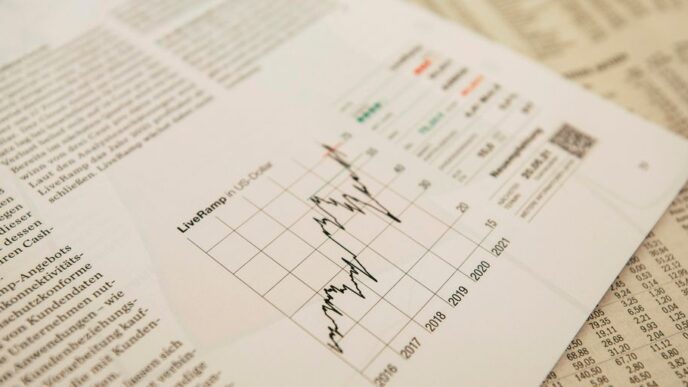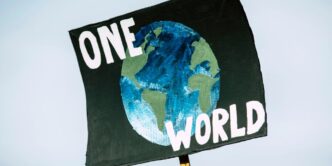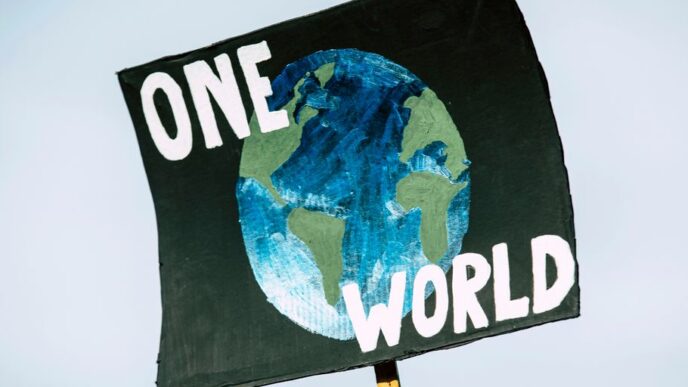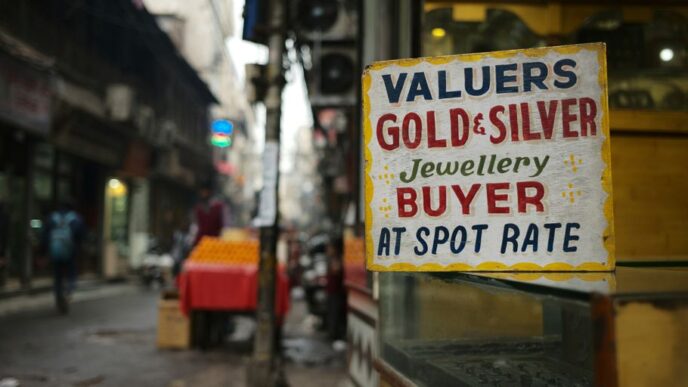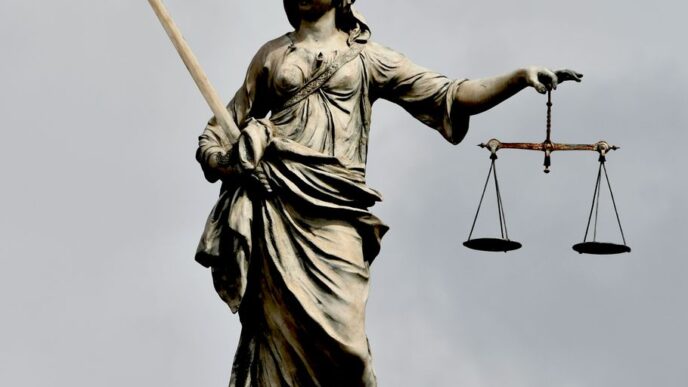In recent years, the use of artificial intelligence (AI) has sparked significant debates in Hollywood, especially during the actors’ and writers’ strikes. These negotiations highlighted the concerns and hopes of creative professionals regarding the impact of AI on their jobs and rights. This article explores how AI-powered platforms are influencing contract negotiations and the broader implications for the entertainment industry.
Key Takeaways
- AI is becoming a major factor in contract talks for Hollywood actors and writers.
- Unions are pushing for rules that protect artists from AI misuse and ensure fair compensation.
- The recent strikes have set a precedent for how AI can be used in creative fields while respecting workers’ rights.
- Negotiations revealed a growing concern about AI’s potential to replace human jobs in the industry.
- Solidarity among unions has strengthened the fight for better protections against AI in the workplace.
The Role of AI in the Hollywood Actors and Writers Strikes
Understanding the Impact of AI on Creative Professions
The rise of artificial intelligence has sparked significant concern among Hollywood actors and writers. Many fear that AI could replace their roles, leading to job losses and a shift in how stories are told. The industry is at a crossroads, where the integration of AI could either enhance creativity or threaten livelihoods.
AI as a Central Issue in Contract Negotiations
During recent contract negotiations, AI emerged as a key topic. Writers and actors demanded protections against the misuse of AI, particularly regarding the use of their likenesses and work without consent. The Writers Guild of America (WGA) successfully secured provisions that allow writers to use AI as a tool, but not as a replacement. This historic move sets a precedent for future negotiations across the industry.
The Evolution of AI Technology in Hollywood
AI technology has evolved rapidly, with studios increasingly looking to integrate it into their workflows. This shift raises questions about the ethical implications of using AI in creative processes. As studios explore AI for tasks like scriptwriting and casting, the need for clear guidelines and protections becomes more urgent.
The ongoing strikes highlight the importance of addressing AI’s role in the industry, as it poses both opportunities and threats to creative professionals.
Summary
In summary, AI’s role in the Hollywood strikes underscores the need for careful consideration of how technology impacts creative jobs. As negotiations continue, the balance between innovation and protection for workers remains a critical focus.
Key Players in the Negotiations and Their Perspectives
SAG-AFTRA’s Stance on AI
SAG-AFTRA, the union representing actors and other entertainment professionals, has taken a strong position on the use of AI in the industry. They emphasize the need for clear guidelines to protect workers from potential exploitation. The union’s leadership believes that any AI implementation must prioritize human involvement and creativity.
Studios and Streamers’ Position on AI
On the other side, studios and streaming services have shown a mixed response to AI. While some executives see AI as a tool for efficiency, others are cautious about its implications for job security. They argue that AI can enhance creativity, but many workers fear it could replace them.
Influential Voices from the Picket Lines
Voices from the picket lines have highlighted the importance of solidarity among workers. Many strikers believe that the fight against AI is a fight for their future. They stress that without proper regulations, AI could undermine the very essence of creative work.
"The strikes are not just about pay; they are about protecting our craft and our community."
— A striking actor
Summary Table of Perspectives
| Key Player | Position on AI | Main Concerns |
|---|---|---|
| SAG-AFTRA | Need for guidelines and protections | Exploitation of workers |
| Studios/Streamers | Mixed; see AI as a tool for efficiency | Job security and creative integrity |
| Picket Line Voices | Strong opposition to unregulated AI | Future of creative professions |
In conclusion, the negotiations surrounding AI in Hollywood are complex, with various stakeholders holding different views. The ongoing discussions will shape the future of the industry and its workforce.
Historic Contract Provisions and Their Implications
Groundbreaking AI Rules in the WGA Contract
The recent contract signed after the 2023 strike marks a historic moment for writers in Hollywood. It introduces new rules regarding the use of AI, ensuring that it serves as a tool rather than a replacement for human creativity. Here are some key points:
- AI is not a writer: The contract clearly states that AI cannot be credited as a writer. Only human writers will receive credit for their work, even if AI is involved in the process.
- Writers have the choice: Writers can choose to use AI tools, but studios cannot force them to do so. This gives writers more control over their creative process.
- AI-generated drafts: If a studio provides an AI-generated draft, it will not count as original source material. Writers will still receive full credit and compensation for their ideas.
Protections for Actors Against Digital Replication
The contract also includes important protections for actors:
- Informed consent: Studios must obtain explicit permission from actors before using their likeness or voice in AI-generated content.
- Detailed agreements: Any use of an actor’s image must be clearly outlined in the contract, preventing vague permissions.
- Concerns about synthetic performers: The contract addresses the potential creation of entirely AI-generated performers, ensuring that actors’ rights are protected.
Long-term Effects on Hollywood’s Labor Market
The implications of these provisions extend beyond the immediate contract:
- Setting a precedent: This contract may influence future agreements in Hollywood and other industries facing similar challenges with AI.
- Proactive approach: The writers’ union acted quickly to establish these rules, which could serve as a model for other unions dealing with AI issues.
- Future negotiations: The groundwork laid in this contract will likely shape discussions in upcoming negotiations, ensuring that workers’ rights remain a priority.
The 2023 contract is a significant step forward, showing that workers can negotiate terms that protect their interests in the face of advancing technology.
This contract not only safeguards the rights of writers and actors but also sets a new standard for how AI can be integrated into creative industries without undermining human talent.
Challenges and Controversies Surrounding AI in Hollywood

Ethical Concerns Over AI-Generated Performances
The rise of AI in Hollywood brings serious ethical questions. Many worry about how AI-generated content might affect the quality of storytelling. If machines start creating scripts, what does that mean for human creativity? Writers fear that AI could take over their jobs, especially for entry-level positions. This could lead to fewer diverse voices in the industry, as AI often learns from existing scripts that may not represent all communities.
Economic Impacts of AI on Employment
AI’s influence on jobs is a major concern. Here are some key points:
- Job Losses: Many writers fear that AI will reduce the number of available writing jobs.
- Wage Pressure: With AI doing some of the work, there may be downward pressure on wages for human writers.
- Skill Gaps: As AI technology evolves, workers may need new skills to stay relevant in the industry.
Creative Ownership and Compensation Issues
Another big issue is who owns the work created by AI. If a script is written by an AI trained on existing works, who gets paid? This raises questions about fair compensation for writers and artists. Many feel that using AI without proper guidelines is like plagiarism.
The use of AI in Hollywood is not just about technology; it’s about the future of creativity and the livelihoods of many artists.
In summary, while AI has the potential to change Hollywood for the better, it also brings significant challenges that need to be addressed. The industry must find a balance between embracing new technology and protecting the rights and jobs of its creative professionals.
Lessons Learned and Future Outlook for AI in the Entertainment Industry
Insights from the 2023 Strikes
The 2023 strikes highlighted the importance of understanding AI in the entertainment industry. Union members realized that they needed to educate themselves about AI’s capabilities and implications. This led to a more informed negotiation process, where members could voice their concerns and suggestions effectively.
Potential Future Conflicts Over AI
As AI technology continues to evolve, it is likely that new conflicts will arise. Here are some potential areas of concern:
- Job security for actors and writers as AI becomes more capable.
- Ethical issues surrounding AI-generated content.
- Contractual protections that may need to be updated regularly.
Strategies for Other Industries Facing AI Disruption
Other industries can learn from Hollywood’s experience. Here are some strategies:
- Educate members about AI and its implications.
- Engage in open discussions about AI’s role in the workplace.
- Establish clear guidelines and protections in contracts.
The key takeaway is that guardrails and protections are essential for a balanced approach to AI in creative fields. By embracing AI with caution, industries can harness its potential while safeguarding their workforce.
In conclusion, the lessons learned from the 2023 strikes will shape the future of AI in entertainment. As the industry adapts, it is crucial to maintain a focus on human-centered AI practices that respect and protect creative talent.
Solidarity and Support: The Role of Unions in the Strikes
Collaboration Among Different Unions
The Hollywood strikes have shown how important it is for different unions to work together. United efforts can amplify their voices and strengthen their demands. Here are some key points about this collaboration:
- Unions from various sectors joined forces to support each other.
- Shared resources, like food and supplies, helped maintain morale on the picket lines.
- Joint rallies and events increased public awareness and support.
Support from Other Labor Organizations
Many labor organizations outside of Hollywood stepped in to show their support. This solidarity is crucial for the success of the strikes. Some examples include:
- Labor unions from different industries provided financial aid.
- Activists organized events to raise awareness about the issues at stake.
- Public statements from other unions helped to rally more support.
Impact of Solidarity on Negotiation Outcomes
The unity among workers and unions has had a significant impact on the negotiations. The strength of their collective voice has led to:
- Increased pressure on studios to address their concerns.
- A more favorable environment for negotiations, as companies recognize the power of united workers.
- A sense of community that encourages ongoing activism and engagement.
The strength of a united front is a powerful tool in negotiations. When workers stand together, they can achieve more than they could alone.
In conclusion, the solidarity shown during the Hollywood strikes highlights the importance of unions and collective action in advocating for workers’ rights, especially in the face of challenges like AI disruption.
The Broader Implications of AI in Creative Industries
AI’s Influence Beyond Hollywood
AI is changing how creative work is done across many fields. AI is revolutionizing the art creation experience from enabling new methods of artistic work to increasing accessibility. This shift is not just limited to Hollywood; it affects various sectors, including:
- Music: AI tools help musicians compose and produce music.
- Visual Arts: Artists use AI to create unique pieces and explore new styles.
- Writing: Authors can use AI to brainstorm ideas and draft content.
Comparisons with Other Industries
The impact of AI is felt in many industries, not just entertainment. Here’s a quick comparison:
| Industry | AI Impact Level | Key Changes |
|---|---|---|
| Healthcare | High | AI assists in diagnostics and treatment plans. |
| Education | Medium | Personalized learning experiences. |
| Marketing | High | Targeted advertising and customer insights. |
The Future of Human-Centered AI Implementation
As AI continues to evolve, it’s crucial to focus on human-centered approaches. This means:
- Ensuring Fair Compensation: Artists and creators should be paid fairly for their work.
- Maintaining Quality: AI should enhance, not replace, human creativity.
- Encouraging Diversity: AI tools should promote diverse voices and stories.
The rise of AI in creative fields presents both opportunities and challenges. It’s essential to navigate these changes thoughtfully to protect the essence of human creativity.
Conclusion
In summary, the recent strike in Hollywood highlighted the significant role of AI in shaping the future of the entertainment industry. The Writers Guild of America successfully negotiated a contract that not only protects writers but also sets a precedent for how AI can be used responsibly. This agreement ensures that writers maintain control over their work and receive fair credit and pay, even when using AI tools. As the industry continues to evolve, it’s clear that collaboration between workers and studios is essential. The lessons learned from this strike can guide other industries facing similar challenges, emphasizing the need for open dialogue and worker inclusion in discussions about technology. Ultimately, the fight for fair treatment in the age of AI is just beginning, and it will be crucial for all workers to stay united and vigilant.
Frequently Asked Questions
What is the main concern about AI in Hollywood?
Many actors worry that AI can copy their image and voice without their permission, which could take away their jobs and creative control.
How did the recent strikes relate to AI?
The strikes were partly about making sure there are rules for how AI can be used, so it doesn’t replace writers and actors.
What protections did writers win regarding AI?
Writers can choose to use AI tools, but they must get credit and payment for their work, ensuring AI is a helper, not a replacement.
How are unions involved in the fight against AI?
Unions are working together to protect workers from being replaced by AI and to ensure that their rights are respected in contracts.
What might happen in the future with AI in Hollywood?
As AI technology improves, there may be more conflicts over its use, and workers will need to keep negotiating for their rights.
Why is it important for workers to be included in AI discussions?
Workers need to have a say in how AI is used in their jobs, so their needs and concerns are addressed before decisions are made.


